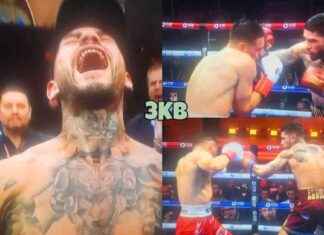The Antonis Papadopoulos Stadium, in Larnaca, would be the ground where the Spanish Soccer Team would experience one of the most dishonorable episodes in its history. He went to the Cypriot city for the qualifying phase for Euro 2000, but an unexpected defeat against an almost amateur team by three goals against two put the then national coach Javier Clemente on the trigger. If the criticism and tensions regarding his work at the head of the team were high, this was the straw that broke the camel’s back. It happened on September 5, 1998, now 25 years ago.
This episode of national football is one of those recovered by Informe, the Movistar Plus sports program that, on the occasion of the start of its seventeenth season, has dedicated a special to the figure of Javier Clemente, for the first time articulated as a three-part documentary series (issued between this Wednesday and Sunday).
“Either you were for Clemente or you were against him. It is the reflection of a society, of the media, of sports journalism. This is the story of a country,” says Luis Fermoso, director of the program. For its realization, more than 100 hours of archival material from between 1990 and 1998 have been examined and key figures have been interviewed, from the former Chirpiote coach Panikos Georgiou, to journalists such as Santiago Segurola, Alfredo Relaño and soccer players such as Santiago Cañizares, Luis Enrique or Julio Salinas. Of course, also Javier Clemente himself.
Before reaching the disaster in Larnaca, Clemente’s Spain takes us to the match against Italy in the 1994 World Cup, where La Roja was knocked out of the competition in the quarterfinals due to goals from the Baggios and an elbow from Tassotti to Luis Enrique that the referee preferred to ignore despite the blood.
“It was a shame, tremendous anger. I remember Luis. He was my roommate. The night he gave me was terrible. My nose was broken and we didn’t sleep. A night to remember,” said Aberlado during the presentation of the program at the Vitoria Festival. Also, due to Salinas’ missed opportunity to score. “It is impossible for anyone to reproach Julio Salinas for anything with the number of goals he has scored in his life”, justifies Rafael Alkorta, “He has scored goals in all the countries and teams he has played for. But it is something he has to carry with the.”
The second installment advances to Euro 1996, held in England, but not only analyzes the Red’s game but also the particular coexistence he had with the press of the moment. It was the only team that stayed in the same hotel as the sports journalists who covered the event and it created a claustrophobic environment that was not conducive to concentrating on the game. Not only were there tensions between journalists and players, but also sides were made between the informants.
“The problem comes when the press attacks each other,” says Alkorta, “You saw that they were giving birth to you and the issue began to get rare because there were two factions of the press that had their own troubles. García was from Javi [ Clemente], although he gave us when he had to, but the other faction gave us no matter what.” However, Aberlardo acknowledges that those press conferences were “entertaining” and that the players were always present to see the knives fly.
And so, in the third episode, he reaches Cyprus to narrate the dismissal of Javier Clemente. “It was a shame because the magnificent results were there for six years,” defends Aberlardo, who describes the protagonist of the documentary series as “a genius”, with whom he coincided as his second coach at Sporting: “I knew him closer as person and he won me much more. As a coach he is very smart: I remember that when he arrived he did not know many players and after two or three days he already knew all their characteristics”. Alkorta, for his part, has another word to define Clemente: “Brave”.







